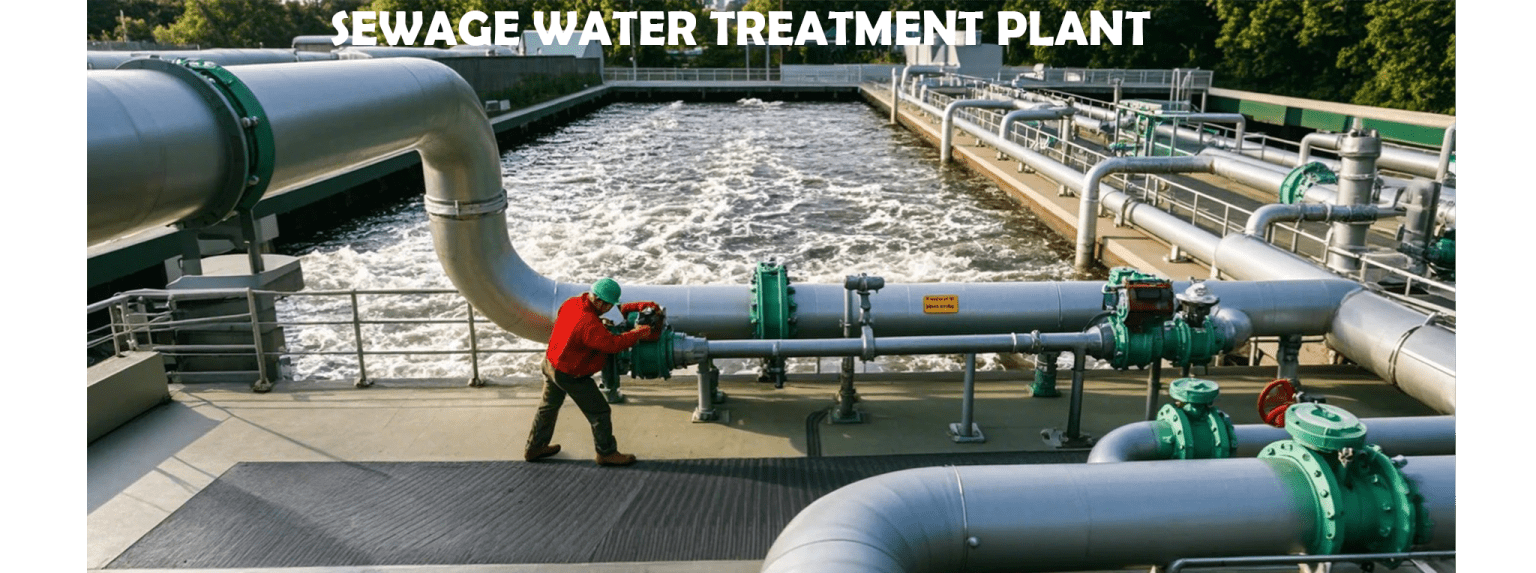
SEWAGE WATER TREATMENT PLANT IN BANGLADESH (STP)
A sewage treatment plant (STP) in Bangladesh plays a crucial role in ensuring safe and clean water. These plants treat wastewater, remove impurities, and make it reusable for irrigation, industrial processes, or safe discharge into the environment. With increasing urbanization, STPs are vital to managing wastewater efficiently and preventing environmental pollution. For a country like Bangladesh, prone to flooding and water scarcity, these plants are essential to sustainable development and public health.
An STP is equipped with advanced technology to handle and treat sewage, ensuring that untreated wastewater does not harm natural water sources or human health. The treated water can be utilized effectively, turning waste into a valuable resource.
Types of Sewage Treatment Plants
1. Primary Sewage Treatment:
This involves removing large solid particles and floating debris from wastewater. Primary settling tanks are used to allow the heavier particles to settle at the bottom, while lighter materials float to the surface for removal. This basic treatment reduces the load of pollutants entering the environment.
2. Secondary Sewage Treatment:
Here, biological processes are employed to treat the water further. Bacteria and microorganisms break down organic matter, reducing biochemical oxygen demand (BOD) and removing suspended solids. This step ensures that the water is safer for release into natural water bodies.
3. Tertiary Sewage Treatment:
Tertiary treatment is an advanced process that removes remaining pollutants such as nitrogen, phosphorus, and harmful microorganisms. It involves filtration, chemical treatments, and UV sterilization to produce high-quality water suitable for reuse or safe disposal.
Advantages of Sewage Treatment Plants in Bangladesh
- Environmental Protection: Reduces water pollution by treating harmful contaminants before discharging wastewater into rivers, lakes, or seas.
- Recycling Water: Treated water can be reused for irrigation, industrial processes, and even groundwater recharge.
- Improved Public Health: Prevents waterborne diseases by ensuring clean water and a hygienic environment.
- Sustainable Development: Supports urbanization and industrial growth while minimizing environmental impact.
Working Process of an STP
An STP typically consists of the following key steps:
- Pre-Treatment: Large debris and grit are removed using screens and grit chambers.
- Primary Treatment: Settling tanks separate solids from liquids, reducing pollutants in wastewater.
- Secondary Treatment: Biological processes decompose organic matter, removing contaminants.
- Tertiary Treatment: Advanced techniques like filtration, chemical disinfection, and UV treatment ensure high water quality.
- Discharge or Reuse: Treated water is released into water bodies or used for agricultural and industrial purposes.
Key Features of an STP
- Advanced Technology: Uses modern equipment and techniques like activated sludge processes, membrane filtration, and UV disinfection.
- Eco-Friendly: Reduces pollution and minimizes the environmental footprint.
- Cost-Effective: Recycles water and reduces dependence on fresh water sources.
- Customizable: Can be designed to meet specific needs, from small communities to large industrial setups.
Why Choose Aqualife Engineering for Sewage Treatment Plants in Bangladesh?
At Aqualife Engineering, we specialize in designing, constructing, and maintaining high-quality sewage treatment plants tailored to your needs. Our team of experienced engineers and technicians ensures that every project is completed with precision and excellence.
- State-of-the-Art Technology: We use the latest equipment and eco-friendly techniques to deliver the best results.
- Comprehensive Solutions: From designing to installation and maintenance, we handle everything for you.
- Affordable Pricing: Our cost-effective solutions ensure value for money without compromising quality.
- Reliable Support: We provide 24/7 assistance to address any issues and keep your plant running smoothly.
Frequently Asked Questions
Why is an STP essential in Bangladesh?
An STP is vital to managing wastewater, preventing environmental pollution, and ensuring public health. It helps conserve water resources and supports sustainable urbanization.
How much does an STP cost?
The cost depends on the plant’s size, capacity, and technology used. Aqualife Engineering offers customized solutions to meet your budget and requirements.
What technology do you use in your STPs?
We use advanced techniques such as UV disinfection, activated sludge processes, and chemical treatments to ensure efficient wastewater management.
Can treated water from an STP be reused?
Yes, treated water can be safely reused for irrigation, industrial processes, and even landscaping, reducing the demand for freshwater resources.
Choose Aqualife Engineering for reliable, efficient, and eco-friendly sewage treatment solutions in Bangladesh. Contact us today to learn more!
